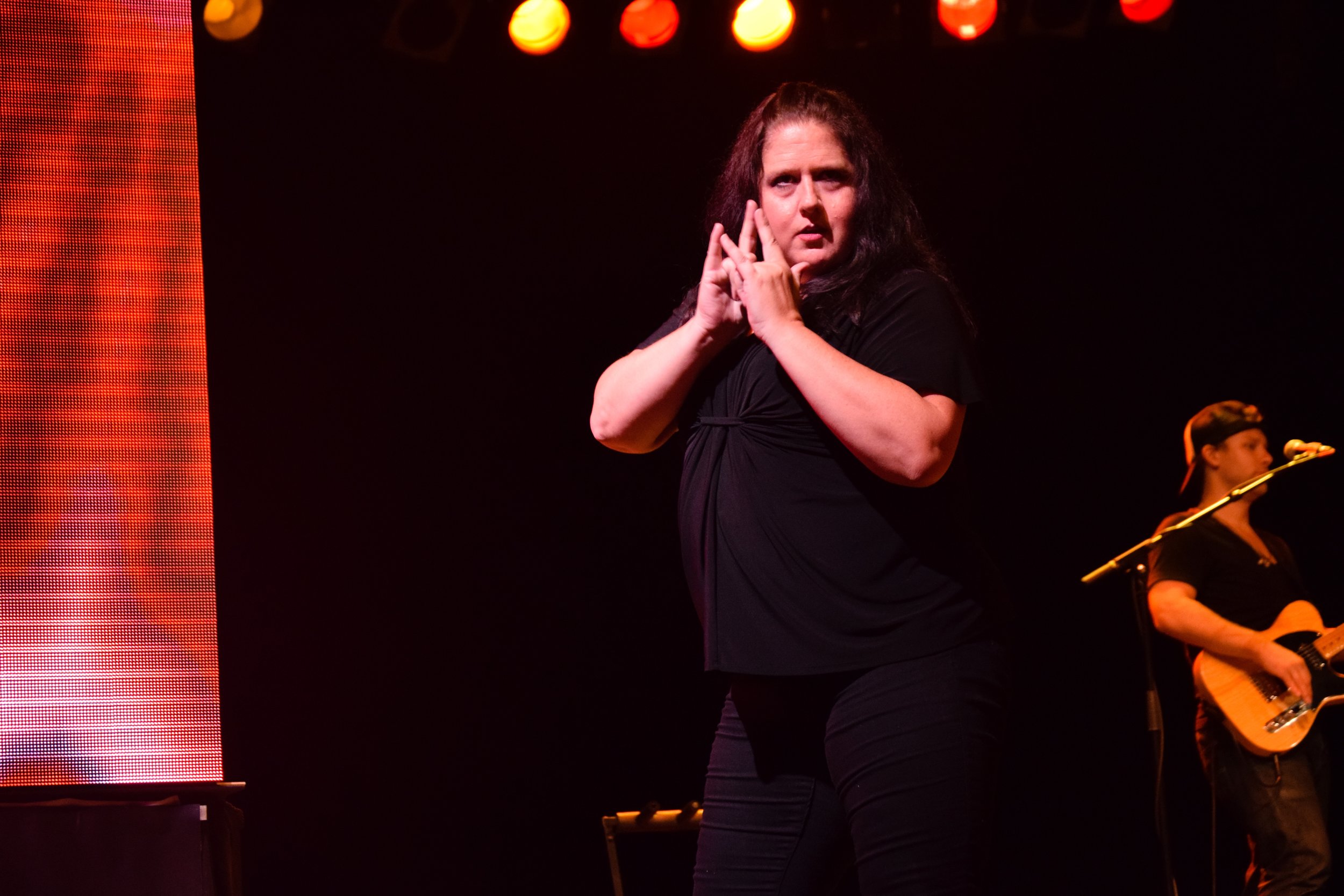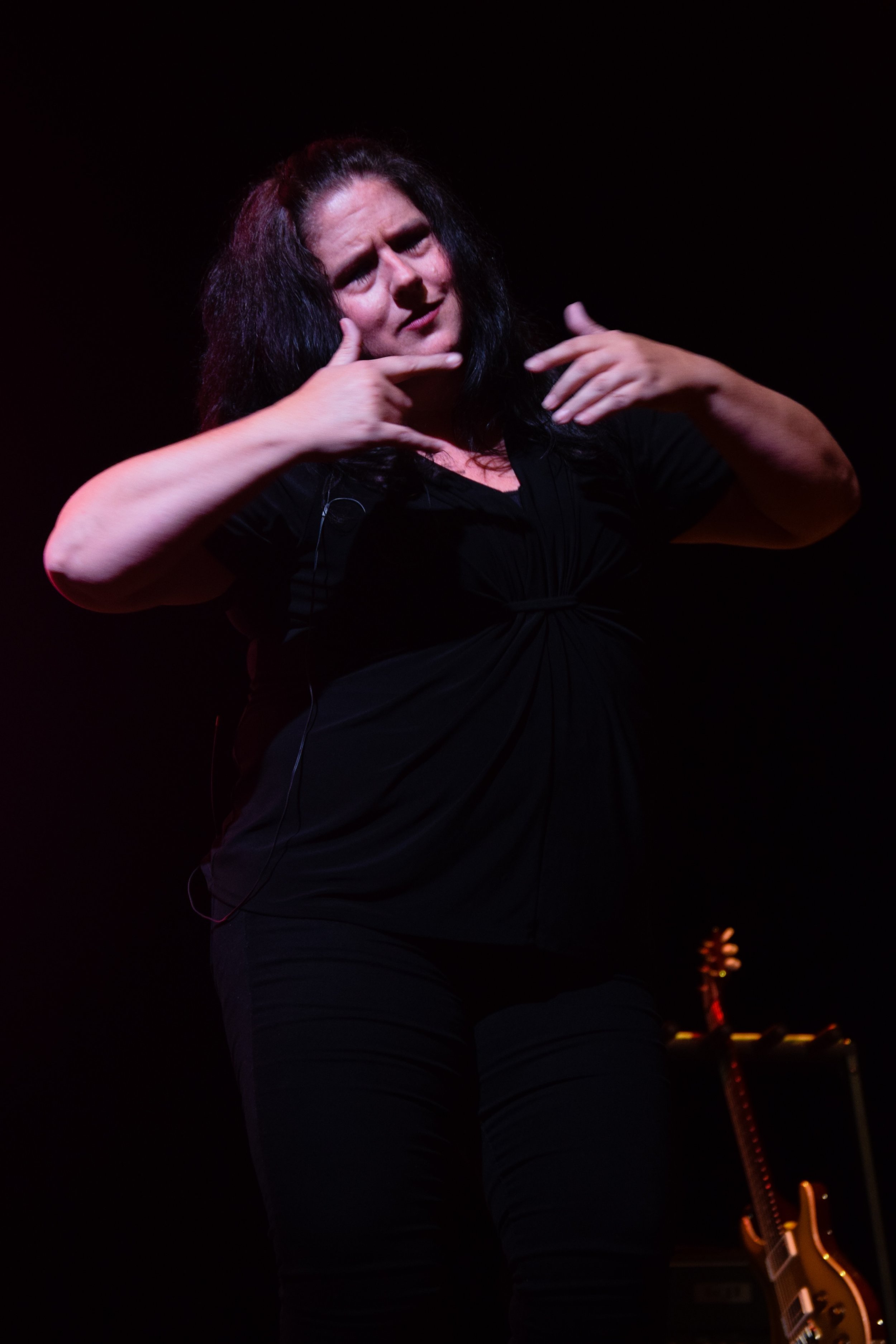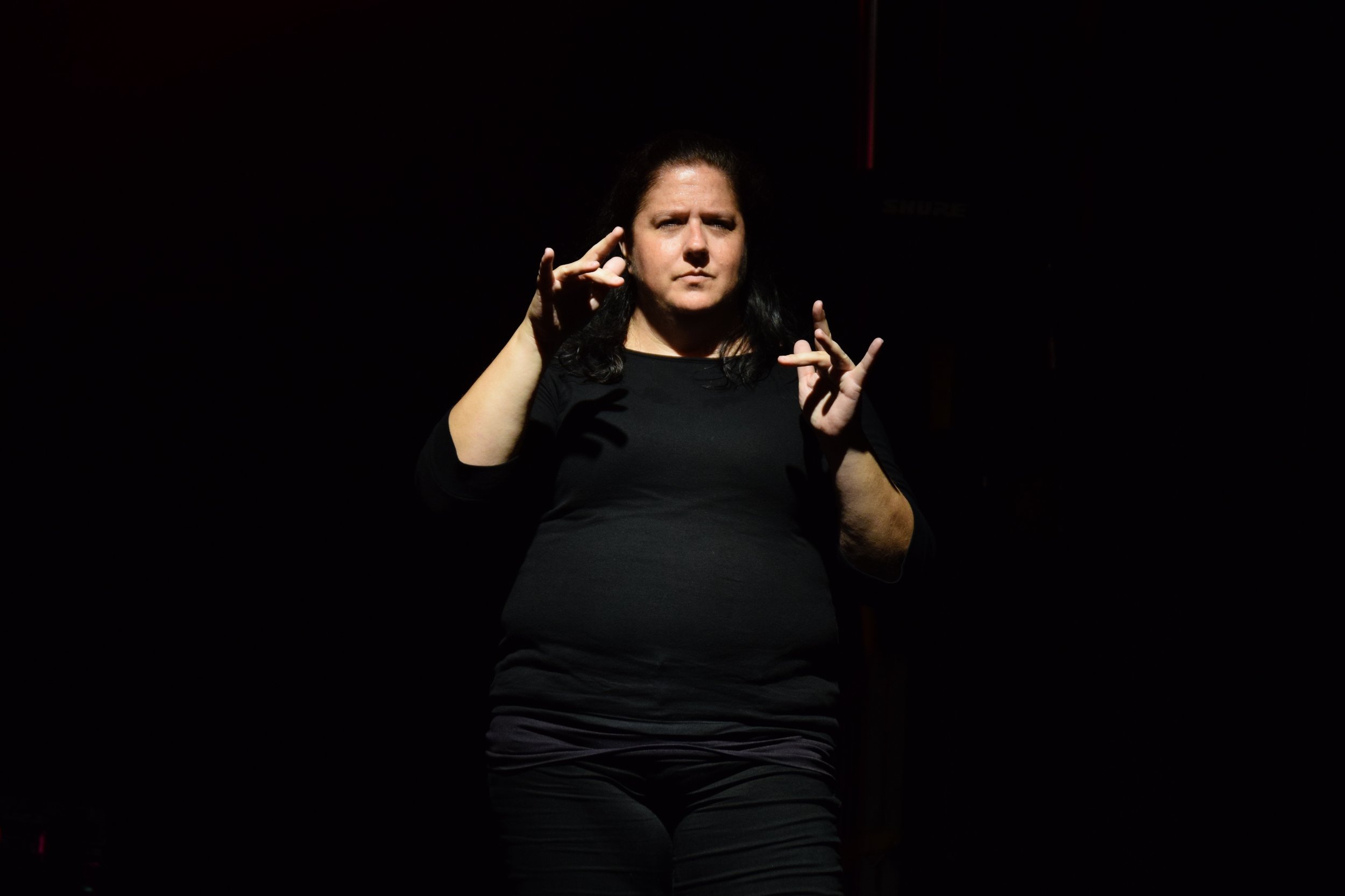September is Deaf Awareness Month! In celebration, we interviewed Sabrina Smith, our lead ASL interpreter here at Virginia Stage Company. For each production, we provide one signed performance (you can find the dates for these here), and Sabrina is present for all of them!
Photo Credit: WB Photography
Can give us a brief rundown about you, your background, and how you came to be working as an interpreter (both in general and for Virginia Stage Company)?
Sabrina Smith: I started working because I fell in love with the language and decided to take college classes. I was able to get an degree from TCC in American Sign Language Interpreting. After that, I continued my education until I finished my PhD — a long ride, but worth it! I have been in the field of interpreting for over 19 years. I currently hold the credentials of being Nationally Certified Interpreter for the Deaf. I work in many settings — education, medical, video relay — but performance interpreting is my passion. I started working in theatrical interpreting in 2001. I have worked behind the scenes as well as in the forefront interpreting over 85 shows. I love working in the theater, and I work hard to improve my craft. I have trained by attending workshops such as Juilliard’s TDF interpreting in the Theatre in NYC as well as Bringing the Stage to Life in Nashville, Tennessee. I am also a wife of 30 years and a mother to a 24-year-old daughter and a 22-year-old son.
Outside of Virginia Stage Company, do you work as an interpreter for any other local organizations?
SS: Yes, I worked for Broadway Across America for five years; I worked with Jam Theatricals for one year. I also currently work for Alluvion Stage Company interpreting shows at Liberty University. I do work with local venues such as the Hampton Coliseum, the Scope, and have done many concerts and shows in the area and throughout Virginia.
How challenging do you think it will be to sign for I Sing the Rising Sea, which has a lot of different characters, compared to shows with a smaller cast?
SS: Actually, Virginia Stage Company is always amazing, and they make sure we get the script well in advance therefore we can prep extensively. I did prep for over a month for this show, but because of the date changes, there will be different interpreters filling in. This show is very exciting because it is new, and the story itself was easy to work with because the characters became so personable, and that makes our job as interpreters easier.
Do you have a favorite show that you've interpreted for us?
SS: There are so many! Honkey Tonk Angels was amazing; SCKBSTD was groundbreaking. The Elephant Man was unbelievable, and I love anything Shakespeare. I truly become Scrooge every year. Their American Soil Series has been so rich and true to the community. To pick just one of the shows that Virginia Stage Company has put on over the years would be impossible.
You've done ASL interpretation for us for a number of seasons. What keeps you coming back?
SS: I have been the lead interpreter for Virginia Stage Company for 11 seasons now. I throughly enjoy making sure that there are highly qualified and theatrically trained interpreters for all of the shows. I have amazing teams that work together with me to make each show a success and I collaborate with a Deaf Coach to make sure I am doing the best work I can. There are several reasons I come back, one of them being the amount of heart Virginia Stage Company puts into each show and the way they treat me as an interpreter. They always make sure we have the scripts well in advance, sometimes giving us a whole season in the summer before they even get close to show time. They allow us to have intern interpreters to work with us to help improve the quality of interpreters in the theatre. Anything I need from tickets to shows, allowing us to rehearse in the balcony, and supporting the creative decisions we make, VSC will keep me coming back for as long as they will have me.
How is interpreting different for a musical than for a regular play?
SS: Interpreting for a musical means downloading the music in advance and literally learning all of the words to each song before you can even start the translation. We spend many hours researching what the artist had in mind when they wrote the song and what they want the audience to get out of it. Interpreting for a play also takes a lot more work than people realize. Imagine an actor being hired a few days before a show and told they must be ready to work, it is impossible. We spend weeks reading, doing analysis for character breakdowns making sure to match the right characters with the right interpreters, then going over our lines repeatedly to make sure we understand them. Then starts the work of translation from one language to another, English to American Sign Language. But in the end, it is all worth the effort. The joy of providing access to the theatre and concerts for the Deaf community is overwhelming.





